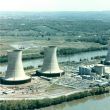Supply, demand, and knowing what is important
By Gilberto M. Jannuzzi, April 5, 2012
In international conversations about nuclear energy in the developing world, both the nonproliferation community and developing countries themselves often attach excessive importance to certain elements of the debate and too little importance to others. As suggested by P.R. Kumaraswamy in his first essay in this Roundtable, the nonproliferation community focuses so much on weapons proliferation that it sometimes fails to appreciate developing nations' growing need for energy services and consequently fails to grapple with how that need might be met. Additionally, nonproliferation advocates often give short shrift to climate change, which, with its unpredictable effects in the developing world, may represent a greater danger than proliferation.
Meanwhile, some developing countries' contemplation of adopting nuclear power may stem from an excessive focus on energy security and inadequate attention paid to other elements of the energy equation. Indeed, strategies for energy security can trap developing nations into conventional approaches to energy planning, and in any event tend to be biased toward a limited number of supply options. Developing countries err, no matter how legitimate their energy needs, if they restrict their options to expanding supply.
But excessive focus on supply-side technologies is a typical feature of energy debates in general. Strategies that could radically alter delivery systems and end-use infrastructures are often overlooked — though radical progress toward such modern, efficient infrastructures could be achieved through the technical solutions I discussed in my first Roundtable essay (these include zero-energy buildings, distributed generation, and transportation systems that require less energy to operate).
Nonetheless, many developing countries are characterized both by repressed energy demand and by growing populations. Thus, even aggressive programs of demand-side innovation will be insufficient to bring these nations' energy equations into balance. According to the 2010 World Energy Outlook, about 1.4 billion people around the world (roughly 85 percent of them in rural areas) have no access to electricity. By 2030, this number is expected to drop to 1.2 billion (even if no new policies to expand access are implemented), but that lower number will still represent about 15 percent of the world's population. Meanwhile, about 2.7 billion people have no access to modern cooking fuels, and that figure is expected to increase to 2.8 billion by 2030. Considering that the burning of biomass produces greenhouse gases and poses dangers to human health, this represents a significant problem.
Given all this, even aggressive policies to adopt advanced demand-side technologies will not solve every country's energy problems; in many cases, expanding the supply base will prove necessary after all. The irregular or low-quality energy services that are available to many in developing countries hamper people's ambitions to improve their lives and, more broadly, hamper nations' efforts to develop economically. Therefore, it is perfectly legitimate for developing countries to seek expansion of their energy supplies, and to consider nuclear energy as part of this effort.
The international community, then, rather than standing in the way of nations' efforts to develop nuclear power, could try to help the developing world meet its energy needs in cost-effective and climate-friendly ways. Providing technology is of course one way to provide assistance, but supply-side technologies cannot be the sole area of emphasis. Other steps might include facilitation of funding for innovative low-energy development, for renewable energy and modern demand systems, and for greater efficiency in areas from construction to the agro-industrial sector. Greater support could also be provided to social institutions and local human resources that have the capability to manage sustainable energy systems. Also important, of course, is for developing countries to engage with each other in technology transfers and generally to strive for greater South-South cooperation.
Nuclear power is one of several legitimate energy options for the developing world. It is the wrong choice in many instances, and the worst outcome for developing countries would be to pursue inappropriate energy choices while simultaneously creating unsustainable patterns of future energy demand. Nonetheless, growth in demand for energy services is real, and must be addressed realistically.
Topics: Nuclear Energy, Nuclear Weapons
Share: [addthis tool="addthis_inline_share_toolbox"]














